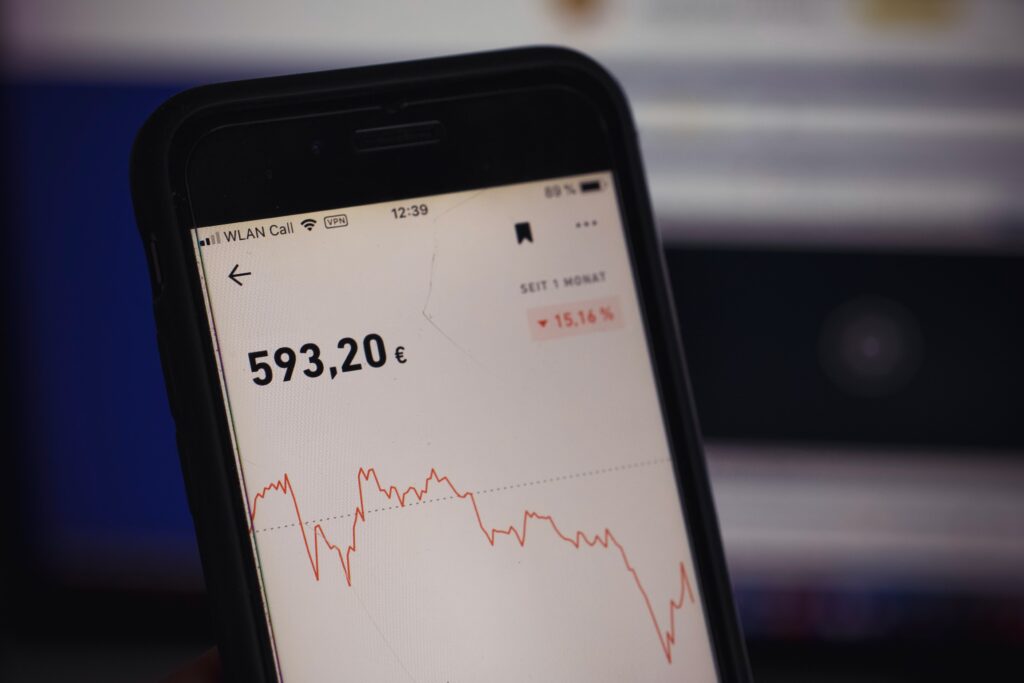“Bull” and “bear” markets are widely used in the context of investing. We’re not even talking about the trade-in of enormous animals.
A bull market sees a steady upward trend in the stock market over time; a bear market sees the exact opposite. One reason for the names is based on the manner in which the animals strike out: bulls thrust their horns forward while bears swipe down.
The COVID-19 pandemic resulted in one of the biggest market crashes in recent memory, but savvy investors currently have another opportunity to make some contrarian money.
The S&P 500, a measure of large-cap U.S. stocks, made a strong comeback in July, but double-digit losses are still anticipated for 2022. For those looking for deals, that gives them something to consider.
What is The Definition of a Bear Market?
A market is said to be in a bear market when prices decline consistently over time. It often refers to a circumstance in which pervasive pessimism and unfavorable investor sentiment cause an equity market value decline of 20% or more from recent highs.
Read Also: Top 3 Mobile Loans Apps To Get a Loan in Nigeria Without BVN
Bear markets can also refer to specific stocks or commodities that experience declines of 20% or more over an extended period of time, usually two months or more. Bear markets are typically associated with declines in an entire market or index like the S&P 500. Bear markets may coexist alongside recessions or other generalized economic downturns. Rising bull markets are comparable to bear markets.
What is the Difference Between a Bear Market and a Bull Market?
In a bull market, stock prices rise steadily or are anticipated to keep rising over the course of several months or even years. In the financial industry, a positive and expanding national economic climate is referred to as a “bull market.” Between December 2011 and March 2015, when the Sensex rose by more than 98%, the Indian stock markets had a bull market.
Stock prices decline steadily or are expected to fall over several months or even years during a bear market. A market is rarely deemed to as a true “bear” market unless it has fallen 20% or more from recent highs. In a weak market, share prices are continually declining. The most recent example comes from the Indian stock market, where between March 2015 and February 2016, the Sensex dropped by more than 23%.
A recession, which is a prolonged period of negative growth, is reliably indicated by a bear market.
Read Also: Inflation Adds to Financial Stress This Year — But Should it Change How You Invest?
Can you make a lot of money in a bear market? if so how?

By the time the bulk of people grasp that we are in a bear market, prices have already fallen significantly, producing emotional misery due to misunderstanding.
Out of greed, the majority of individuals don’t want to “see these costs again.”
Read Also: What Is A Line Of Credit?
Instead of being afraid of bear markets, you should welcome them. The best opportunities frequently arise during the most terrible times. when the vast majority, unable to bear the losses, give up on the situation and escape.
Nobody has ever succeeded in life while always dreading the return of price reductions.
Why, at the height of bull markets, are so many people ready to borrow money and blow up their whole life savings on purchases? But why are they unable to continue with the same drive when the lower prices present incredibly attractive opportunities?
Read Also: How Valuable is Travel Insurance?
Stocks have historically always fallen, only to rise again and reach new heights. In spite of this never-ending circle of opportunity, many customers are hesitant to buy.
In a bear market as opposed to a bull market, FOMO should motivate you to purchase.
Bull markets highlight an asset’s potential and raise the maximum level at which an investment may increase in value over the next bull cycle. Bear markets give you the opportunity to buy assets that were previously and are probably going to be again at large discounts.
You will be destroyed by fear, blocking your path to accomplishment.
If you are prepared to purchase when the market is booming, you ought to be prepared to purchase when the market is tanking. The effort you put forth during down markets will have an impact on your success during bull ones.
Read Also: How To Make a Passive Income of 1000 Dollars Monthly in Nigeria Using WhatsApp
How many investors profit from a bear market?

Investing during a bear market is risky because share values are likely to continue down for the foreseeable future. The possibility of new market lows exists, and there is no guarantee that the upward trend will be swiftly resumed.
One strategy is to look at safe investments that are less prone to swings in the economy, like government bonds.
Purchasing stocks during a bear market isn’t a bad idea if you have the time. A bear market offers the chance to buy what would have been an expensive portfolio for much less if you have 10, 15, 20, or 25 years until you plan to retire.
If you’re unsure of what to do, you might want to speak with an experienced financial planner who can create a future action plan based on your goals and financial condition.
Alternatively, if you’d prefer to handle things yourself, you can use a robo-advisor. Using a variety of advanced algorithms, a portfolio will be created for you after you select your investing schedule and risk tolerance. Then, your robo-advisor frequently modifies your portfolio in reaction to movements in the market.
Read Also: How To Invest In Gold Most Profitably
Dollar-cost averaging is another strategy (DCA). When investing with DCA, you set a monthly investment amount and are not concerned with the cost or number of shares you are buying. When they are inexpensive, you can buy more of them; when they are expensive, you can only buy fewer of them.
If the thought of investing during a bear market gives you the shakes, you can always start with a very little amount of money. By rounding up your purchases to the next dollar and investing the difference, you may invest your spare change utilizing micro-investment apps like Acorns.


